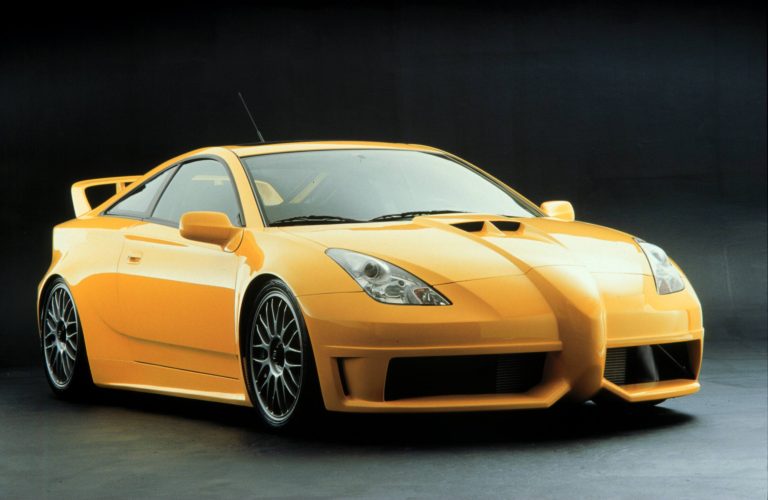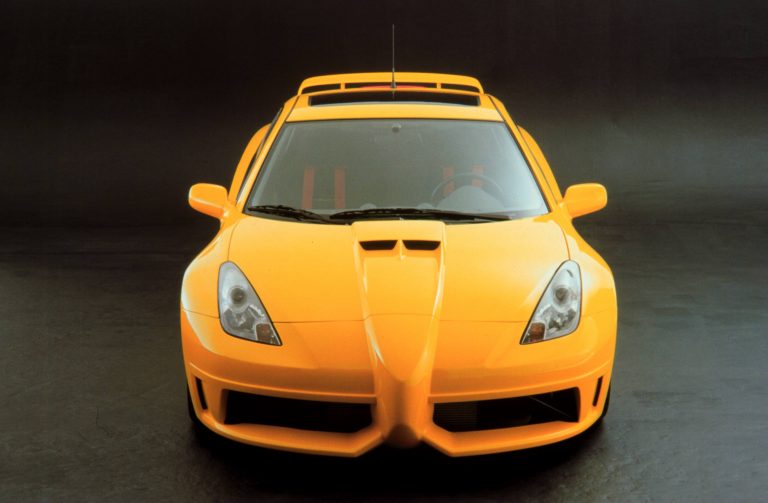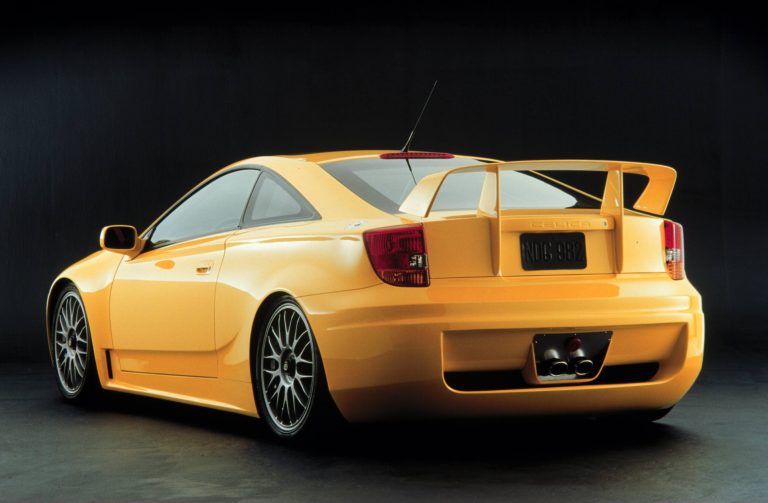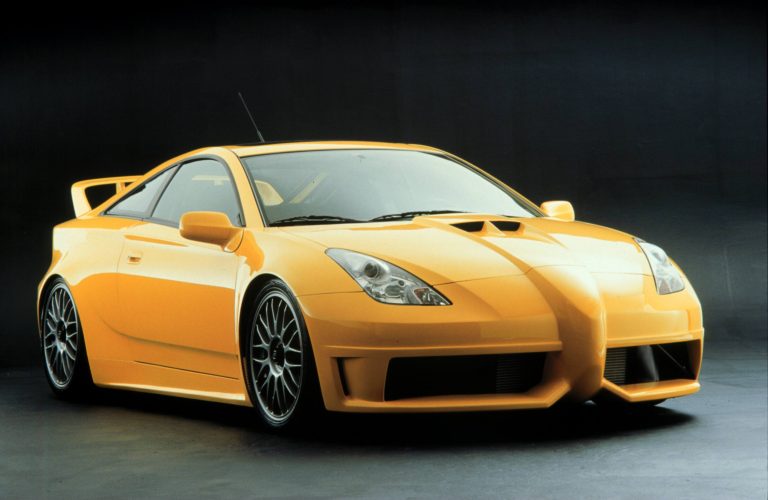The Ultimate Toyota Celica
When Toyota launched its all-new Celica last October, fans of the car may have thought the manufacturer had neglected the car’s rich motor sport heritage.
Toyota USA, along with Rod Millen Motorsports and Toyota Racing Development (TRD), has engineered the Ultimate Celica, a 500-horsepower, all-wheel drive powerhouse.
The Ultimate Celica is the extreme in driving excitement. It features a race-bred suspension, cust hought wrong. om exhaust system, Recaro sport seats with four-point belts, an integrated rollcage, a racing fuel cell, performance tires and wheels, and Champ Car-inspired styling.
The Ultimate Celica concept was developed by a trio of enthusiasts – – Toyota USA executives Jim Press, senior executive vice president, Yale Gieszl, vice chairman, and Bryan Bergsteinsson, group vice president and general manager of the company’s Lexus division.
“We knew from the beginning that we wanted to build a 500-horsepower Celica,” said Bergsteinsson. “Of course, with that much power we knew it would be built as an all-wheel drive car. At that point we sat down with Rod Millen and began detailed discussions and development of the ultimate Celica.”
To reach the 500 horsepower goal, TRD immediately began work on tuning a four-cylinder production powerplant previously used in Toyota’s championship-winning IMSA GTP race cars of the early ’90s, and Rod Millen’s record-setting Pikes Peak Hill Climb runners. The bore and stroke were increased, a turbocharger installed and a custom-built a set of headers made out of inconel and a stainless steel exhaust. As a result, the Ultimate Celica produces 500 horsepower at 8,000 rpm and creates 340 lbs.-ft. of torque at 5,500.
In order to handle the increase in power and torque, the Celica’s production, front-wheel drive powertrain was converted into an all-wheel drive system. “Toyota has a great reputation for all-wheel drive technology,” added Bergsteinsson. “We drew on our knowledge from years of successful world rally competition and engineered a strong powertrain with five-speed manual transmission for use in the Ultimate Celica.”
Modifications also were made to the Bilstein struts and springs to balance and support the vehicle’s additional weight, and racing-inspired over-sized brakes were installed for more efficient braking power. To help stiffen the vehicle’s chassis, Rod Millen Motorsports built a custom rollcage. The front tubes of the cage were welded to existing bodywork and hidden behind the interior panels, while the remainder of the rollcage is only visible behind the front seats.
The interior of the Ultimate Celica is identical to the production model, except for the additional feature of front, custom Recaro sport seats equipped with four-point racing harnesses.
The Ultimate Celica’s distinctive look was created at Calty, Toyota’s U.S. design centre in Newport Beach, Calif.
“When Calty styled the 2000 Celica production vehicle, we used Champ Car design influences,” said Dave Hackett, Calty executive director. “We simply took the theme a step further for the Ultimate Celica by designing a box-shaped rear wing and a unique front fascia that mimics a formula car-styled nose and front suspension.”
The new body pieces widen the vehicle by 3.8-inches in the front and 3.2 in the rear. Further sharpening the Ultimate Celica’s appearance are 245/35 Michelin Pilot performance tires wrapped around 19-inch BBS magnesium racing wheels with knockoffs, and the vehicle’s unique colour was developed and applied in a special, three-stage process at the Calty studios.
“Helping Toyota assemble and build the Ultimate Celica has been a blast,” commented an enthusiastic Rod Millen. “And they’ve already said I can start giving some rides in it… …some really, really fast rides.”
ENDS





